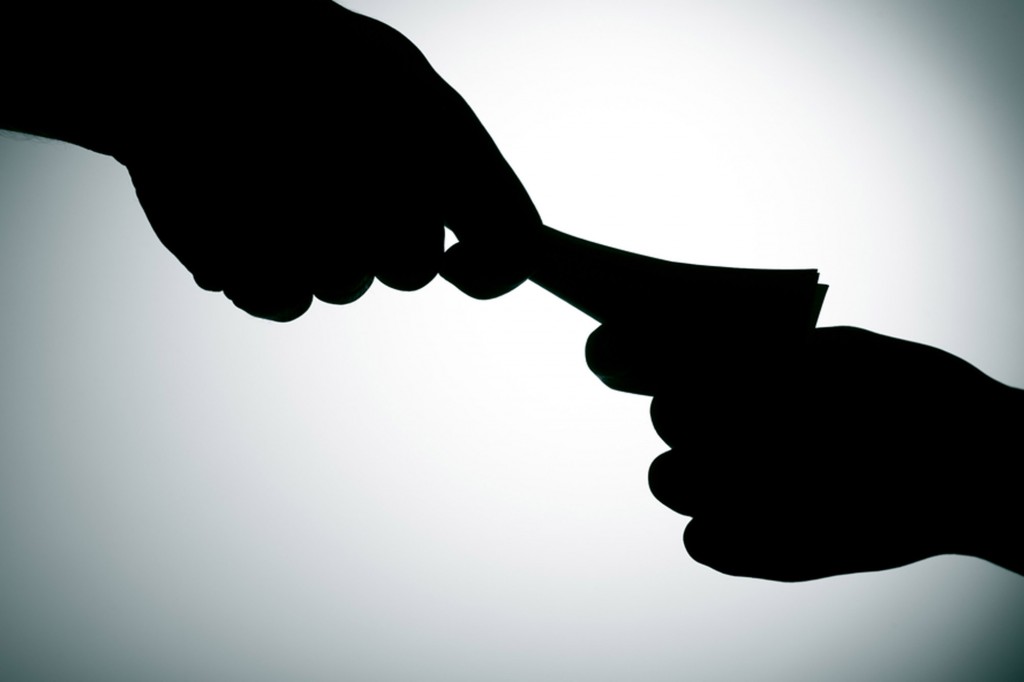Image courtesy Ada Derana
The largest ever bribe in Sri Lanka to date seems that which was offered to three top officials in the Customs Department on 14 October (2015), in a place somewhere in Maradana. The Director General of the Commission to Investigate Allegation of Bribery or Corruption (CIABoC) Ms. Dilrukshi Dias Wickramasinghe told media it took three weeks of planning to nab the officers and two more are under investigations.
This bribe had initially been fixed for Rs. 150 million. Subsequently, from what the DG CIABoC told media, these Custom officers had agreed for Rs. 125 million and then the complainant had informed the Commission on its hotline ‘1954’ about the bribe. She has promised media to investigate further on the matter. But, the question is, will she ? What would the new 3 member Commission do about it? Whatever they would decide upon, let me raise few issues that tell me this has not one but few red herrings in it.
The whole story revolves round the supply of an unbelievably heavy consignment of spare parts to the Sri Lanka Transport Board (SLTB). The main supplier is a foreign company with a local agent representing them. The value of the consignment cannot even be imagined when Customs say on a post-audit the Company would have to pay Rs. 1.5 billion for the release of spare parts. It is on this unbelievably high payment required that the bribe is said to have been negotiated. A place in Maradana itself sounds bit sneaky for such high end deals.
Leaving the issue of this record high bribe aside for now, the first question that crops up is around the procedure adopted for the SLTB to procure such large consignment of spare parts from a foreign supplier? Were tenders called for such a heavy load of high value spare parts and was there a technical board that approved the items as necessary? Or was the deal done without any tender procedure and if so, by whom ?
There is also the purpose of importing such a large consignment of spare parts. Spare parts obviously mean they would be used to maintain the running fleet and perhaps also to improve service with more buses on the road by getting ‘laid off’ buses repaired. Then all of it should have not only a technical report, but a ‘cost-benefit’ evaluation to spend a massive amount as indicated by the Custom’s post-audit.
SLTB is by no means a State corporation that can afford to think of such high value imports given their financial status. A year ago, the SLTB management was found fault by its employees for defaulting on EPF payments to the value of Rs. 4.5 billion over a period of 4 years. Workers’ trade unions in June last year complained to the Commissioner General of Labour and to the Human Rights Commission on this massive default of EPF payment affecting over 34,000 employees. Had Yahapalanaya turned the SLTB round to such financial capability in less than a year it could import spare parts from a foreign supplier that would have to be paid a custom fee of Rs. 1.5 billion by its supplier? Perhaps the 125 million bribe asked for sapped up what the supplier or its local agent had calculated as profit for dividing and sharing and that prompted the call on the hotline.
The CIABoC for now has kept details of the foreign supplier and its local agent confidential. The media too is yet to disclose the total value of the spare part consignment and the duty initially calculated, before the post-audit levy. Yet there are other details that need to be made public given the heavy load of the bribe that involves procurement for a State corporation running on borrowed money. First and foremost is the need to know if this purchase by the SLTB was decided during the previous Rajapaksa rule or after the January 8 Yahapalanaya change. Thereafter it is necessary to know who approved the purchase and how and who chose the foreign supplier.
Leaving the CIABoC to do their job, the Ministry of Transport now under Nimal Siripala de Silva has a responsibility to give all basic information that led to the decision for the purchase to be made. What took place after the decision can await investigations by CIABoC now under its new Commission Members appointed a few days ago.
This Sirisena-Wickramasinghe regime needs to prove they remain true to their pledge of transparent and accountable governance. They have miserably failed in that not only during their 100 day performance but during the past 286 days in charge of the government. Looking back, there is no worthy progress to talk of in any sphere; in economic planning, in social development, in law enforcement and prosecution and even in how the independent commissions are appointed. It’s therefore time for Yahapalanaya leaders to prove they are no extension of the Rajapaksa rule.
A difficult job no doubt.
